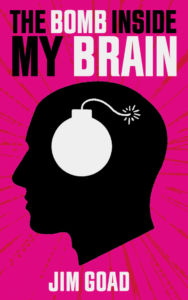Eating Watermelon Is Hardly the Worst Thing Black People Do

Image source: Wikimedia Commons
1,583 words / 12:19
As we all commemorate National Watermelon Month and finalize plans to celebrate National Watermelon Day on August 3, it has come to my attention that many black people are terrified of eating watermelon in front of whites.
What a strange thing to fear. I’d think it’s better than being tied to a post and whipped for getting uppity with your slave master, but I’ve never been a black slave, so I wouldn’t know. Then again, neither have any of the modern black writers who write agonized treatises about trembling in horror of confirming “stereotype threat” by nibbling on watermelon under the cruel white gaze.
Audio version: To listen in a player, use the one below or click here. To download the mp3, right-click here and choose “save link/target as.”
On Monday in The Baltimore Banner, John-John Williams IV — apparently three John-John Williamses weren’t enough — wrote about a black woman he knows who refuses to eat watermelon in places where she might risk being seen by a white person:
Chrissy Thornton has a list of rules when it comes to foods she’ll eat in front of white people: no watermelon, no fried chicken, no ribs. She doesn’t like the optics.
“It’s not about watermelon. People say it’s healthy. Of course it is. But that’s not what they see when they see us eating it. They see a stereotype that was created decades ago,” said the 48-year-old Reisterstown resident, who is Black [sic]. “I probably eat more watermelon than anyone I know. But I do it in the privacy of my own people. It’s one more way we can’t allow our counterparts to see us that way.”
A “counterpart” such as myself would assume that black people in Baltimore have more pressing problems than having me accidentally espy them eating watermelon — chief among them living around other black people in Baltimore.
In 2022, balding and bespectacled black lady Renee Graham wrote in the Boston Globe:
On my first trip to Italy years ago, my friends and I did something we’d never dared before — we ate watermelon in public, purchased from a street vendor in Rome.
In 2019, Cynthia Greenlee — a purple-lipped recipient of a MacDowell Fellowship in Literature and winner of the James Beard Foundation Award — wrote about her dread of eating watermelon in front of white people:
My hand hovered over the fruit tray, about to spear a chunk of watermelon, when a white person walked up. I paused.
Does she ever pause while walking the streets alone at night and sees an unfamiliar black man approaching her? And if so, has she ever written about that?
In November 2014, while accepting a National Book Award for her “adolescent verse memoir” Brown Girl Dreaming, Flavor Flav lookalike Jacqueline Woodson suffered the indignity of being reminded by Daniel Handler, the white man who introduced her, that she was allergic to watermelon. The previous summer, Handler had graciously hosted Woodson at his Cape Cod home and tried to serve watermelon soup, whereupon Woodson informed him that she was allergic to it. But Woodson rewarded his generosity by writing an essay in The New York Times she titled “The Pain of the Watermelon Joke.” She accused Handler of operating from “a place of ignorance.”
In 2015, gay black TV broadcaster Vester Flanagan shot two white co-workers live and on camera, then blew off his own head during a police chase. He’d previously claimed that workers had taunted him by intermittently placing a watermelon “in a strategic location where it would be visible to newsroom employees entering and exiting the building.”
In the grand scheme of things, I’d reckon it’s worse to commit a double homicide than allegedly being forced to view the occasional strategically-placed watermelon, but I’m clearly operating from a place of ignorance.

You can buy Jim Goad’s The Bomb Inside My Brain here.
In 2018, the President of New York University said it had been “inexcusably insensitive” that in the course of honoring Black History Month, a dining hall at his school offered what The New York Times called “two beverages with racist connotations: Kool-Aid and watermelon-flavored water.”
In 2019, the Boston Museum of Fine Arts offered a formal apology after a black teacher named Marvelyne Lamy claimed that a staff member had told her group of black students, “No food, no drink, and no watermelon.” Boston Mayor Marty Walsh said that the purported remark was “incredibly disturbing.” The story made international news, with the Daily Mail dubbing it “shocking racist behavior.” The shockingly racist staff member claims they were misheard, however, and that they’d merely said, “No food, no drink, and no water bottles.”
In 2022, officials at the Children’s Museum of Indianapolis had dared to offer “Juneteenth Watermelon Salad” but backpedaled when it had been deemed “offensive after a photo of the salad circulated on social media.” A museum rep added, “We deeply regret the hurt and the pain that the food offering in our food court has caused, and we apologize.”
I’d bet my house that I experienced more pain reading that comment than any black children did at the prospect of eating free watermelon salad.
In 2023, the principal of a middle school in Nyack, New York sent a groveling apology letter to parents:
The offering of chicken and waffles as an entree with watermelon as a dessert on the first day of Black History Month was inexcusably insensitive and reflected a lack of understanding of our district’s vision to address racial bias.
Wait a cotton-pickin’ minute — what’s so bad about eating watermelon? Alongside the similarly hateful banana, it’s my favorite fruit. One summer about nine or ten years ago, back when Jacqueline Woodson was grieving about painful watermelon jokes and Vester Flanagan was killing white people because he’d felt taunted by their watermelon placement, I polished off three watermelons in five days.
The Wikipedia page “Watermelon stereotype” attempts to explain the roots of this deeply painful meme:
The watermelon stereotype is an anti-Black [sic] racist trope originating in the Southern United States. It first arose as a backlash against African American emancipation and economic self-sufficiency in the late 1860s.
After the American Civil War, in several areas of the south, former slaves grew watermelon on their own land as a cash-crop to sell. Thus, for African Americans, watermelons were a symbol of liberation and self-reliance. But for many in the majority white culture watermelons embodied, and threatened, a loss of dominance. Southern White [sic] resentment against African Americans led to a politically potent cultural caricature, using the watermelon to disparage African Americans as childish and unclean, among other negative attributes.
While researching this article, I saw this narrative unquestioningly pushed over and over and over and over and over and over and over: Whites felt threatened by black entrepreneurial savvy as demonstrated through watermelon sales, so in order to demoralize them and thwart the possibility that blacks would, oh, master math and physics and economic theory and suddenly start inventing things, they created a cruel stereotype that blacks enjoy eating watermelon.
It would have been nice if any of these people peddling this storyline had cited evidence from any white person saying something in the spirit of, “We felt economically threatened by these coons selling watermelons, so we had to shut ’em down with gross stereotypes of coons eating watermelons.” Is it too much of me to ask for even one citation?
The Wikipedia page on “watermelon stereotype” says the “first known image associating Black [sic] Americans with watermelons” was a benign 1866 illustration adjoining a newspaper article in Charleston, South Carolina that explained:
The Southern negro in no particular more palpably exhibits his epicurean tastes than in his excessive fondness for watermelons. The juvenile freedman is especially intense in his partiality for that refreshing fruit.
But the same Wikipedia page suggests that around the same time, black minstrels were propagating their own watermelon stereotypes:
The link between African Americans and watermelons may have been promoted in part by African American minstrels who sang popular songs such as “The Watermelon Song” and “Oh, Dat Watermelon” in their shows, and which were set down in print in the 1870s.
Sample lyrics from “Oh, Dat Watermelon”:
Den Oh, dat watermelon,
Lamb of goodness, you must die.
I’m gwine to join de contraband children,
Gwine to git a home bye and bye.
Excuse me for suspecting that these black minstrels unwittingly presented far grosser caricatures of black behavior than that anemic newspaper article did.
Film shorts from the late 1890s such as Watermelon Contest depicted black men sloppily gobbling on the oversized and deeply-hydrating fruit — but, as with the minstrels of the 1870s singing watermelon songs, these were black people depicting themselves.

I could be wrong, but it seems as if most of the egregiously cartoonish depictions of blacks and watermelons that were produced by whites — things such as the “coon cards” of the early 1900s, songs such as 1916’s “Nigger Love a Watermelon Ha!, Ha!, Ha!” and 1941’s Universal Pictures animated cartoon Scrub Me Mama with a Boogie Beat — came after the watermelon songs by black minstrels in the 1870s. It doesn’t seem as if whites created this stereotype as much as they observed it and then appropriated it.

Rather than modern white people being “inexcusably insensitive,” I think it’s more accurate to describe contemporary blacks as being pathetically thin-skinned.
I can think of a lot of worse things that black people do than eating watermelon. I doubt it’s even in the Top 100. And yet, unlike eating watermelon, they aren’t afraid to do most of these things in public.




